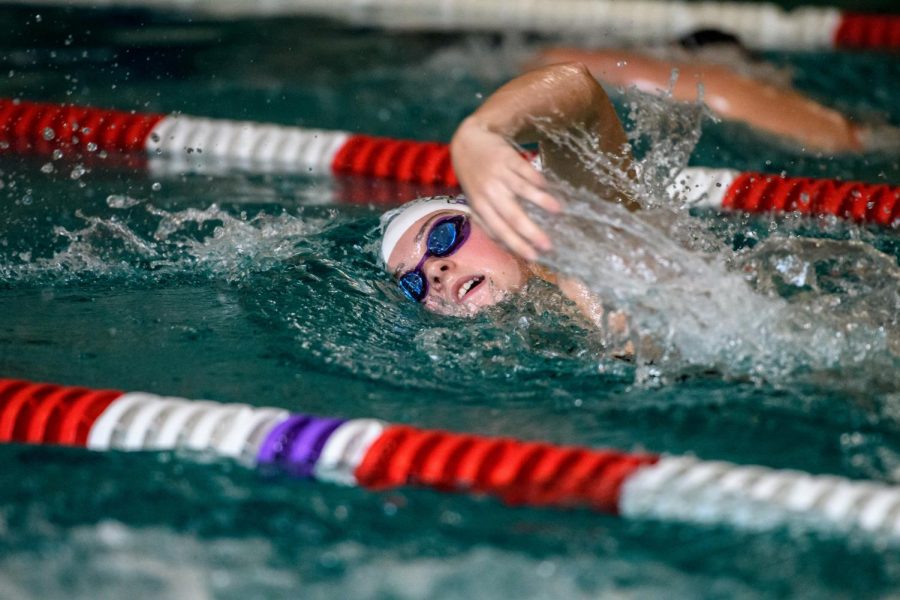
They’re everywhere — chained to doors and poles or sitting on porch steps of residence halls. Bicycles at Linfield aren’t new — just a growing trend among students and faculty who prefer two wheels to four.
During the past four years, senior Duncan Reid has worked to accommodate Linfield’s bicycle culture with new bicycle racks and implementing the school’s Bicycle Co-Op.
Now, there are roughly 300 bicycles on campus, filling up the bike racks or sitting on porches, Robert Cepeda, director of Linfield College Community Public Safety & Security, said.
“There are more bikes on campus now, and I’d like to say it’s because we’ve provided more resources for cyclists,” Reid said.
Since opening in fall 2009, the Bicycle Co-Op has helped students fix flat tires, broken chains and rusty breaks, junior David Kellner-Rode said.
“A lot of people get a flat tire and will just stop riding their bikes because they don’t know how to fix them,” he said.
With “Bicycle Month” approaching in May, the Bicycle Co-Op plans to hold workshops on bicycle safety and maintenance to continue encouraging students to use their bicycles, Kellner-Rode said.
“[The Bicycle Co-Op] isn’t super usable yet,” Kellner-Rode said. “But I’ve learned more from starting this than from any other class.”
Running the Bicycle Co-Op is comparable to operating a nonprofit organization, Kellner-Rode said, because he has learned to manage finances, apply for grants, train workers and order parts.
In just a few short months, the co-op has become the hub of the student cycling culture, Reid said.
“It’s the only student-run building on campus,” Reid said. “I would encourage students to just come and hang out in there.”
The bicycle culture isn’t just about practicality, either, Reid said. Cyclists enjoy riding for the sheer enjoyment of wind and speed.
“People just need to experience what it’s like to ride a really nice bike,” Reid said.
As the weather improves, the co-op will sponsor bike rides in parks and through trails in town, Kellner-Rode said.
While the bicycle culture continues to blossom on campus, it faces several roadblocks, primarily the rainy weather, the shortage of bicycle racks on campus and the absence of bicycle lanes, Jeff McNamee, assistant professor for the athletic department, said.
“I think we need bike racks by every door,” Reid said.
For a bicycle culture to dominate campus, students and faculty need the proper infrastructure and facilities, McNamee said.
For example, students and faculty may not mind riding their bicycles in the rain but choose not to because they know there isn’t a coat rack in the lecture room or a rack close enough to their building to hang their rain coats up, McNamee said.
“We just don’t have a great sense of what it is that students and faculty need to chose to ride their bicycles,” he said.
Linfield Avenue doesn’t have bike lanes because it isn’t owned by the school, McNamee said. But, as more people begin to ride bikes instead of driving in McMinnville, the city will need to accommodate the cyclists.
“When there’s a critical mass [of cyclists], traffic responds,” McNamee said.
Members of Greenfield, Linfield’s sustainability club, expanded storage space during the Northwest Sustainability Challenge by building the frame for an eco-friendly bicycle parking lot.
The lot, located between Elkinton and Terrell halls, will house 36 spaces and will feature the school’s first eco-roof with a solar panel, Kellner-Rode said. The eco-roof is a vegetation roof planted to provide natural insulation. The plants won’t be planted in the roof until fall 2010 when there are less extreme weather conditions.
Beyond choosing to ride bicycles for fun or sustainability, students should choose to simply because it is healthy, McNamee said.
“The debate about climate change polarizes groups — but I don’t think that people will debate that biking improves health,” he said.
For those considering the happy medium between driving and walking, Kellner-Rode suggests checking Craigslist before heading to Wal-Mart for your first bicycle.
“We’ve had a lot of problems with the Roadmasters from Wal-Mart,” he said.
For about $60, a person can purchase a decent used bicycle, he said.
“Portland is a bike mecca, so it should be easy to find what you’re looking for,” he said.
There are also different levels of involvement within the bicycle culture, Kellner-Rode said. Some students choose to ride their bicycles from residence hall rooms to classes, while others ride them everywhere.
In fall 2010, Kellner-Rode, Reid and their roommates made a pact to not drive anywhere in town simply because they don’t see the need to drive.
“Biking in the wind, the cold and the rain isn’t bad if you’re prepared for it,” Kellner-Rode said. “It can actually be kind of fun.”
Because Linfield is a flat campus, it is a bike-friendly area, Reid said. But just a few years ago, many students were still driving their cars from their dorm rooms to the library.
“It’s just really good to see pretty much every bike rack full,” he said.
Chelsea Langevin
Senior reporter Chelsea Langevin can be reached at [email protected]

